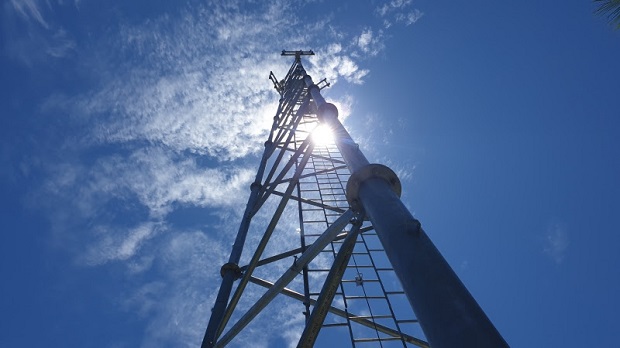The Department of Information and Communication Technology (DICT) launched on Thursday, Sept. 9, the “Digital Infrastructure Monitoring System: Tower Watch PH”, a monitoring mechanism for tower construction to better streamline permit processing time and accelerate the rollout of connectivity infrastructure in the country.

“Through the Tower Watch PH, we endeavor to “future-proof” our Common Tower Initiative by ensuring that our streamlining efforts in the previous years will not go to waste and continue to contribute to building a more far-reaching and robust ICT infrastructure in the country, regardless of changes in national leadership. The case is when a new administration sits in, some projects of the previous admin are sidelined to give way to the projects of the current admin — we don’t want that to happen,” DICT secretary Gregorio “Gringo” B. Honasan II said.
“We hope to ease the regulatory burdens that impede the construction of necessary telecommunications infrastructure. We also hope to promote transparency and accountability — two important factors in ascertaining the speedy approval and issuance of tower permits,” he added.
The virtual launch was attended by DICT officials alongside executives from the telco industry and common tower providers.
The Digital Infrastructure Monitoring System aims to complement the government’s initiatives in addressing the slow Internet speed and lack of Internet presence in isolated and disadvantaged areas due to the low number of towers, fiber backhaul, and fiber network.
The DICT said it also hopes to encourage more investments by fostering a conducive and enabling policy environment. This would enable the government to accelerate the delivery of nationwide access to broadband services, it said.
“We noticed that even with the issuance of the Joint Memorandum Circular no. 01, s. 2021 on the guidelines for the issuance of permit, licenses and certificates for the construction of Shared Passive Telecommunications Tower Infrastructure (PTTIs), there is a danger that without a transparency system, the regressive attitudes would still continue. Thus, to promote transparency and help our private sector accelerate the digital infrastructure buildup, the DICT has developed this Tower Watch monitoring system,” DICT undersecretary Emmanuel Rey R. Caintic stated.
Tower Watch will cover applications submitted by common tower firms and telcos for the building or installation of common towers, Fiber Optic Cables (FOCs) and Installation of In-building Solutions (IBS).
The DICT said this will allow telcos to self-report their applications through the system, including the date and time the requirements were submitted to the concerned local government unit (LGU) or National Government Agency (NGA). The system then records and transmits this information to the concerned LGU or agency, wherein the system can monitor pending applications and tag those that are delayed.
This would also allow oversight agencies to have access to the overall status of pending and completed applications, enabling them to monitor the compliance of the LGUs or offices and to ensure their cooperation with the prescribed processing times, the DICT said.
The revised JMC no. 01, s. 2021 serves as the basis of the process flow for the common tower application in the Tower Watch PH. The processing duration prescribed in the policies are followed to ensure that applications are acted upon efficiently by the LGU/NGA processors.
“As the Tower Watch PH provides transparency, the private sector and the public can make agencies and LGUs accountable in case they fail to comply with the common tower policy, the issuances on streamlined processing of permits, and most especially Republic Act 11032 or the Ease of Doing Business and Efficient Government Service Delivery Act of 2018,” Honasan asserted.
“This system serves as our safety net to ensure continuity of the national ICT development agenda whoever the DICT Secretary or the administration is. Moreover, we hope to encourage more telcos to build more infrastructure and, in the long run, improve Internet speed and connectivity in the nation,” he added.




